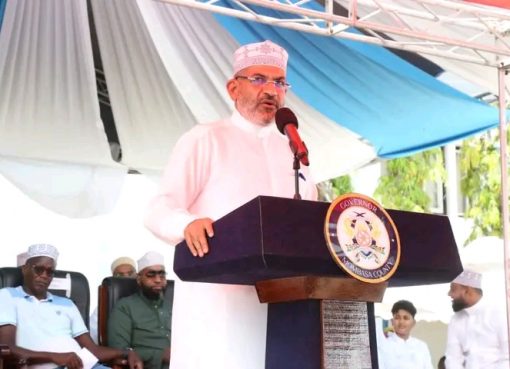Scientists and various stakeholders want Kenya to embrace agricultural biotechnology in efforts to increase productivity and attain food security.
A University of Nairobi lecturer Dr. Douglas Miano has observed that use of biotechnology in food production will see the country reduce the rate of importation of various foods, especially grains.
Speaking during an open forum on agricultural biotechnology, Kenya chapter that was held at Murang’a University of Technology, Miano argued that foods produced through genetic engineering have been proven safe for human and animal consumption.
The lecturer, who is a plant pathologist, said there was a need to demystify concerns surrounding biotechnology by highlighting its benefits in securing the nation’s food security.
“Accurate information about biotechnology needs to be disseminated and shed off misinformation surrounding genetically produced foods. Experts have done their research and verified the foods are safe for consumption by both humans and animals,” he noted.
The varsity don continued, “What we are addressing here are issues on biotechnology and specifically on the use of what we call Genetic Engineering Technology, where we produce genetically modified foods and examine their value in improving our agriculture.”
During the forum that was organized by Murang’a University in partnership with International Service for the Acquisition of Agri-biotech Application (ISAAA Africenter), Miano further explained that biotechnology is essential in increasing yields, both in crops and livestock, while ensuring resistance to diseases and pests.
One of the key advantages of biotechnology highlighted during the forum was its role in enhancing nutritional quality and improving crop resilience to extreme climatic conditions.
Miano reassured farmers that biotechnology is not something to fear but rather a solution to pressing agricultural challenges.
“Agricultural biotechnology comes to address a very specific issue, which is for the purpose of improving our livelihood and our lives,” he added.
Addressing the court order suspending GMO usage, Miano explained that the case had undergone scrutiny, particularly regarding environmental, food and animal safety.
However, despite the dismissal of the initial case, an appeal is still pending, awaiting determination before GMO products can be widely available on market shelves.
He observed that a common misconception about GMO crops was that they could not be replanted, but he clarified that this belief was incorrect, adding that hybrid crops are the ones that farmers are supposed to follow their science behind replanting.
Globally, he noted, countries such as the United States, Brazil, and Canada have embraced GMOs to enhance food production, a testament to their effectiveness.
On the issue of food security, Miano emphasized that GMOs are tailored to address specific agricultural challenges saying Kenya can be food sufficient if agricultural biotechnology is adopted and practiced.
“Every GMO crop is produced to address a specific issue. If you want to improve the crop for yields, you target improvement for yields. The same applies to disease resistance,” he added.
The Lecturer further underscored that GMOs go through rigorous evaluation, involving institutional biosafety committees and strict government regulations, ensuring their safety for human consumption, animals and their impact to the environment.
“If there is a crop that has been assessed to the highest level, it is the GMO,” Miano stated confidently, adding, “To some extent, GMOs are even safer than other foods people consume because they are tested and approved.”
On his part, Association of Kenya Animal Feeds Manufacturers CEO Paul Kamau explained that, for the feed manufacturing sector, GMO crops such as maize can provide a sustainable and cost-effective solution.
Kamau added that they offer higher yields, better disease resistance, and improved nutritional value, ensuring that farmers have access to affordable and high-quality feed for their livestock.
“In turn, this contributes to increased productivity in the livestock sector, ultimately supporting food security in Kenya,” he stated.
Grains like maize and soya, stated Kamau, are the main raw materials for animal feeds, adding that production of maize and soya in the country is limited, and mostly the produce goes for human consumption.
He said Kenya imports almost 80 percent ingredients of animal feeds, saying if the country allows production of genetically engineered maize and soybeans, feed manufacturers will have adequate raw materials, thus reducing cost of animal feeds.
In addition, Dr. Gakuo Mwangi, also from the association of Kenya feed manufacturers confirmed that as an industry, they understand the concerns surrounding GMOs, especially when it comes to their safety in animal feed and human consumption.
However, he advised that it is important to rely on science and factual information rather than misconceptions, affirming that GMO crops have undergone rigorous testing and have been proven safe for both animals and humans by the global health and regulatory bodies.
By Bernard Munyao





